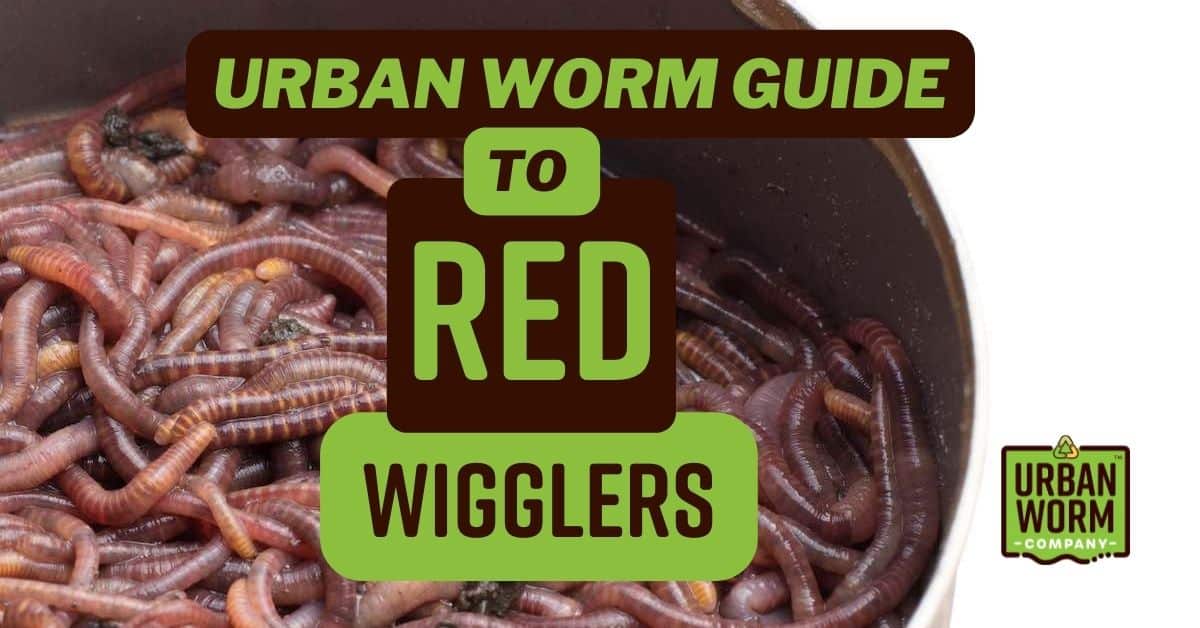Everything about Red Wiggler Express
This overview will certainly present you to the red wiggler to include a deeper on dive on the types and details on breeding, life process, and reproduction. We'll speak about exactly how to keep red wigglers and why they should be the go-to worm for a lot of composters. The red wiggler (binomial name: eisenia fetida) is the globe's most usual composting worm.
A study suggests that both can create hybrid spawn, a sensation which should otherwise be taken into consideration difficult in between most worm species. Fun truth: The "fetid" part of the binomial name describes what some state is a fetid secretion the red wiggler uses to fend off predators. I have actually been dealing with them for years and never ever saw this! The makeup of a red wiggler resembles that of other typical earthworms; a long-segmented body begins at the pointed head and terminates at a slightly-flatted tail.
Red Wiggler Express Fundamentals Explained
The digestion system is basic, starting at the mouth where the worm begins to consume its food prior to passing it on to the pharynx. The throat is a muscular area which acts like a pump to draw food into the mouth prior to pumping it out into the esophagus. The esophagus is slim and thin-walled and serves as the "waiting room" for the gizzard.
Keep in mind: This need for grinding is why grit is recommended in a worm container. The worm features no indigenous grinding capability so the worm counts on ingested grit to assist grind its food in the gizzard. The belly is where the first chemical failure of food occurs with the help of a protein-busting enzyme.

(https://www.bestbuydir.com/Red-Wiggler-Express_398805.html)The intestine develops the longest part of the worm and is where the bulk of digestion takes place using enymatic procedures. The spreadings eventually pass via the anus at the end of the worm as capsules covered with a biologically-rich mucous.
Within 42 days, these child worms will certainly get to sex-related maturation as confirmed by the appearance of the clitellum. A fully grown red wiggler can be anticipated to live between one to three years. The mighty red wiggler might occasionally be made use of as a lure worm for smaller fish or as a protein source for chickens and reptiles.
A Biased View of Red Wiggler Express
And as pointed out above, they are one of the most typical composting worm in the world. Yet why? Well there's most likely not just one factor. Rather, a mix of cost, strength, and convenience in a wide variety of temperatures makes it one of the most appropriate composting worm for many brand-new vermicomposters. Red wigglers and their cocoons can endure in a large array of problems.
This is an usual technique amongst worm shippers that do not intend to take the chance of having the worms being in a warm or cool stockroom over the weekend. Worm cultivators are not keeping worms in a circumstance where they are all set to ship. The worms must be harvested from their habitat initially, so cultivators will certainly usually establish a Friday or Saturday due date in order to harvest in time for a Monday delivery.
To save money on shipping cost, you might intend to see if there are any close-by "Mommy and Pop" stores through a Google search. If you don't discover what you're trying to find, then I invite you to look into worms through the Urban Worm Business! The amount of red wigglers you acquire must be only dependent upon the area you have offered for vermicomposting.
I call these the "Big 3" variables of worm bin upkeep. As discussed previously, red wigglers have a vast temperature tolerance.
Get This Report on Red Wiggler Express

For best results, you want to fire for about 60-70% wetness level. At the excellent moisture levels which is simply under 70% that handful should barely generate one decline of fluid.


The European Nightcrawler, the larger relative of the red wiggler, is simply as ravenous and additionally produces a great bait worm. It likes a bit of a cooler environment than the red wiggler. The African Nightcrawler is a huge composting worm and makes a gorgeous, granular cast.
The Indian Blue is starved, but also likes a warmer climate and it also shows a tendency to leave the container. The red wiggler is a sturdy worm and isn't as choosy concerning its climate. I like to call it the Ford Taurus of vermicomposting worms; you won't boast to your hardcore composting pals that you possess them, however they will certainly offer you well.
The 10-Minute Rule for Red Wiggler Express
Surefire to life 1/2 lb of hand arranged Red Wigglers/Compost with worms (+500 worms) in different stages of life from cocoons to mature worms in their all-natural environment/bedding. Hand sorted worms reduced down on the disturbance of the worms therefore guaranteeing online distribution. Red wiggler worms do not like vibrations or light.
Comments on “Some Ideas on Red Wiggler Express You Need To Know”